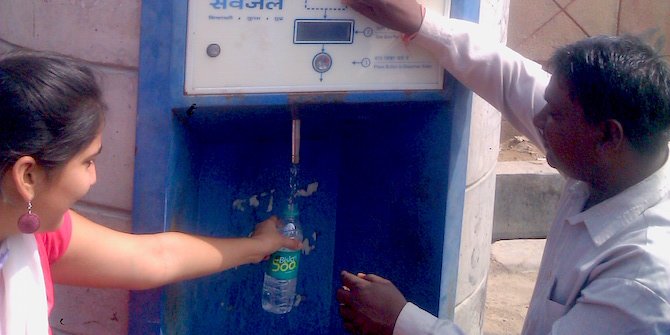Many organisations in India celebrated April as Dalit History, a participatory radical history project, aimed to share the contributions to history from Dalits around the world. From the archives of South Asia @ LSE, here’s a round up of some articles on issues facing Dalit society in contemporary India and Nepal.
Following considerable protest and the subsequent Bharat Bandh, Sandhya Fuchs critiques the recent provision passed by the Indian Supreme Court, which issued new guidelines to prevent what they deemed the ‘rampant misuse’ of the 1989 Scheduled Caste/ Scheduled Tribes Prevention of Atrocities Act.
Blame and shame: examining the media coverage of a Dalit rape victim in India
The 2012 Delhi gang rape triggered introspection within the Indian media on how it reported on sexual violence, and this article analyses how far the print media in India may have come. Sumedha Pal takes the case of reportage of rape of a Dalit woman in 2013.
Nepal’s house of cards: are women included or co-opted in politics?
The recently concluded local elections in Nepal resulted in 40.9 per cent of female representation at the local level, out of which 47.4 per cent are Dalit women. Sangita Thebe Limbu writes about the power dynamics, lived experiences of women, gender quotas and women’s political engagement
The political success of the Dalit movement in North India: A historical perspective
Sonali Campion reports an event where Dr Ramnarayan S Rawat from the University of Delaware, draw on his extensive research in UP to discuss the unique strength of the Dalit political struggle in the 20th century.
Growing crimes against Dalits in India despite special laws
A. Ramaiah discusses why caste-based violence in India is increasing despite a history of legislation against caste discrimination.
Image: BSP campaign chalked on a wall in UP. Credit: flickr/Patrik M. Loeff CC BY-NC-ND 2.0
Note: This article gives the views of the author, and not the position of the South Asia @ LSE blog, nor of the London School of Economics. Please read our comments policy before posting.






